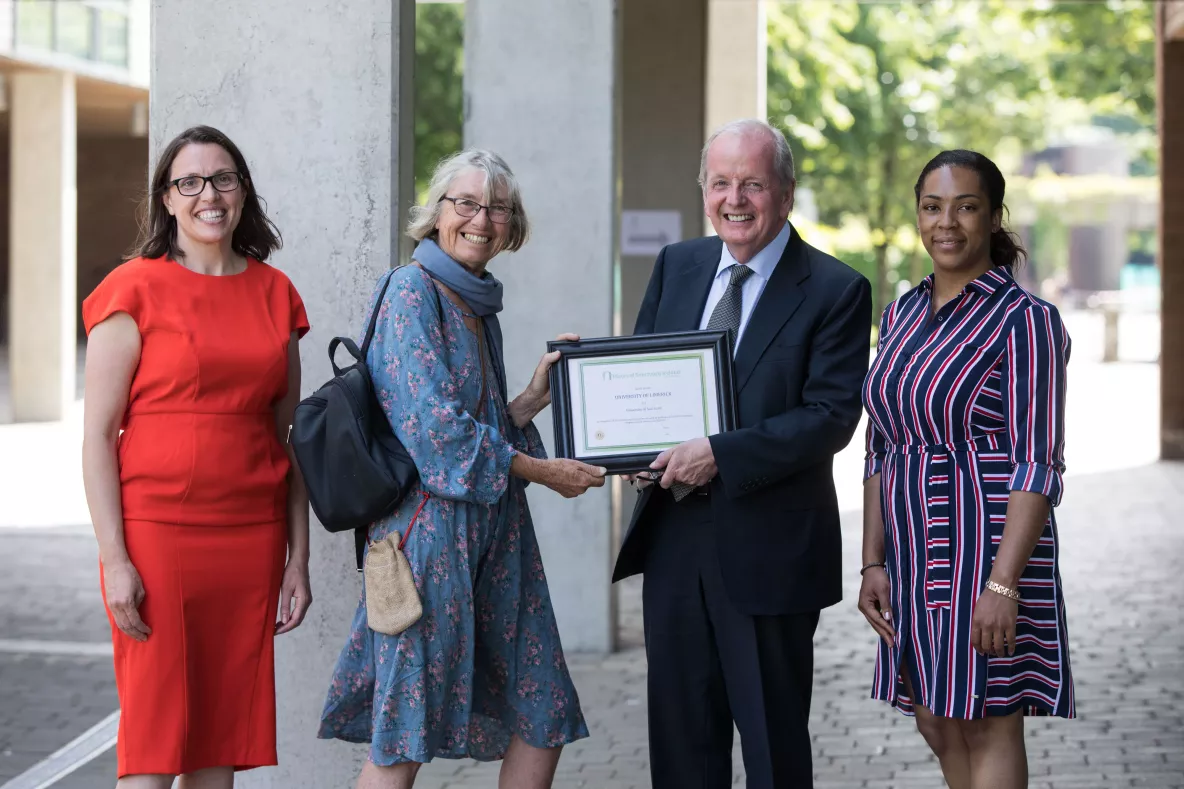
The inclusion of refugees and asylum seekers to University of Limerick through the Sanctuary programme has “enhanced the UL campus”, according to the chair of the steering committee that oversees it.
United Nations World Refugee Day this Thursday marks two years since UL received its designation as a University of Sanctuary.
The designation was a recognition of UL’s commitment to welcoming asylum seekers and refugees into its university community.
Since 2017, a total of 47 students have been recipients of Sanctuary Scholarships to the Mature Student Access Certificate.
UL President Dr Des Fitzgerald said the designation for UL “is an international endorsement of the valuable work that our community has been doing to welcome sanctuary seekers in the Mid-West region.
“It is something that we continue to place at the forefront of this institution as a university education should be accessible to all, irrespective of any background, and at UL, we are focused on building on our history of engagement by enabling and enhancing access for refugees and asylum seekers who come to our shores.
“To hear some of the Sanctuary scholarship students describe that their participation was ‘a dream come true’ and that attending UL gave them a sense that they were ‘making progress in life and not stagnating in the bleak provision of a DP (direct provision) centre’ indicates the positive impact that this programme and scheme has on refugees and asylum seekers.
“The measures taken by central government and the Department of Education to ease the criteria for asylum seekers and refugees to attend third level education is also something that the UL community welcomes, as it aligns with our vision and goals of embracing inclusion and diversity,” he added.
In 2018, the first Sanctuary PhD Fellow was supported. From the academic year 2019/20 the programme will extend to all faculties, with the aim to award a further 30 Scholarships to include direct entry post Leaving Certificate.
“The UL Sanctuary committee have also been active in researching ways in which we can help integrate refugees and asylum seekers more readily in to our society and help demystify some of the fake news that surrounds refugees and asylum seekers,” explained Dr Máiréad Moriarty, Assistant Dean, International, Faculty of Arts, Humanities and the Social Sciences and Chair of UL’s Sanctuary Committee.
“Members of the committee are active members of research projects including Singing and Social research inclusion directed by Professor Helen Phelan.
“UL Sanctuary is also partnered with Quality and Qualifications Ireland in a major European project run by the Norwegian qualifications agency NOKUT which is developing a refugee qualification recognition toolkit for all European universities.
“Over the past two years, UL student involvement in the programme has increased, with UL Student Life running our Sanctuary Week in April 2019. Raising the awareness of the conditions for asylum seekers has also encouraged students to take part in a number of campaigns to end Direct Provision.
“The inclusion of refugees and asylum seekers has enhanced the UL campus and we look forward to developing our commitment over the coming year,” she added.
The Sanctuary programme remains open and has been extended to all faculties. The University of Sanctuary bursary provides financial support to first-time higher education applications who identify as a refugee, asylum seeker or a person in a refugee-like situation as defined by the UNHCR 1951 Refugee Convention.
Successful applicants will be eligible for tuition fee waiver and subsistence payments.
For more, see https://www.ul.ie/courses/university-sanctuary-bursary.